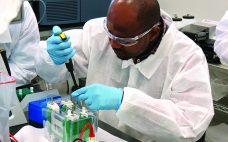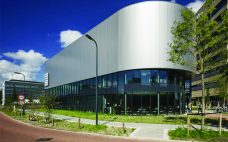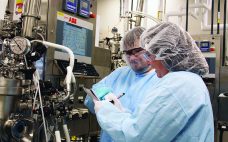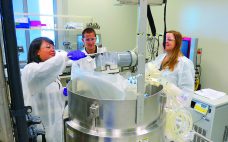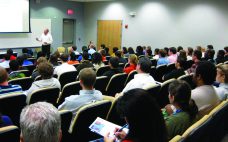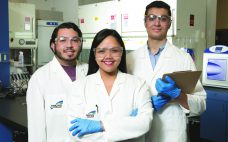Today’s bioprocessing technicians are highly skilled professionals who can operate large automated equipment, juggle numerous support activities, and document manufacturing deviations. In coming years, their jobs will become even more rigorous as companies push more decision-making to the production floor to save time and resources. With the trend toward smaller batches made in bench-scale and/or single-use equipment, this strategy becomes easier to implement. One way to foster improved decision-making on the production floor is to hire or promote employees who…
Careers
Addressing Knowledge Gaps and Skills Development: Modular Training Keeps the Bioindustry at the Leading Edge
One major challenge facing the global bioindustry today is finding talented individuals to work in the type of highly skilled interdisciplinary environments necessary for effective bioprocess development. Ideally, such individuals require a combination of technical knowledge and expertise spanning biological sciences, physical sciences, mathematics, and engineering. Numerous industry surveys have repeatedly stressed the lack of suitably trained individuals equipped with necessary skills to work at the biology−engineering interface to meet the growing and changing demands of industry. The challenge is…
Hands-On Training for Biopharmaceutical Careers: Trainees Gain Practical Experience in Realistic Production Environments
At the April meeting of the BPI International Summit (25−26 April 2017) delegates were treated to a tour of a new training facility. The Biotech Training Facility is about a 20-minute drive from the Amsterdam airport and located in the Leiden Bioscience Park. The park houses companies that employ ~18,000 life science workers. In addition, the Leiden University and the Leiden Academic Medical Center complement the dynamic high-tech environment that facilitates establishment of such a knowledge and experience center as…
Introducing NIIMBL: Accelerating Innovation in Biopharmaceutical Manufacturing
The National Institute for Innovation in Manufacturing Biopharmaceuticals (NIIMBL) was launched in March 2017 as a cooperative agreement with the National Institute for Standards and Technology (NIST), part of the US Department of Commerce. NIIMBL is one of the newest members of Manufacturing USA, a network of manufacturing innovation institutes through which industry, academia, and government work together to accelerate implementation of advanced manufacturing and develop a trained workforce in several key sectors of ththe US economy. NIIMBL’s mission is…
Introduction: Creating Successful Professional Training Programs
Over the years, the BioProcess International special supplements have tackled a large number of important topics on emerging trends and new technologies in biomanufacturing, including single-use technologies, continuous manufacturing, cell therapies, and outsourcing. As these and other issues continue to arise and play a critical role in the development of the biopharmaceutical industry, the success of the biomanufacturing industry relies on its ability to attract and retain a well-trained and motivated workforce that can adapt to new technologies and manufacturing…
Advancing the Biopharmaceutical Community Through Learning and Development Partnerships
As in most high-tech sectors, success within the highly regulated biopharmaceutical manufacturing industry depends upon an adaptable, skilled, educated, and high-performing workforce. The impact of human performance cuts across the entire industry — whether for a manufacturing operator, a scientist or engineer in a highly technical role such as process development, or a technical sales representative serving the industry. The effects of poor performance can be seen easily in deviation reports and FDA warning letters as well as in quantified…
Designing In-House Training Programs: Moving Beyond Read and Understand
To begin the discussions in this issue about structuring successful training programs, these authors describe how to develop in-house resources. Both emphasize the need to assess the impact of previous training approaches. An important factor is to understand that students will bring varying levels of knowledge and relevant experience to their work with your company. So how do you structure a training program that takes into account individual learning styles and operational expertise? How to you measure the successful application…
Training for New and Emerging Technologies: Building Comprehensive, Process-Oriented Competencies
Assessing the need for training that addresses the varied needs of your employees requires looking far beyond a one-size-fits-all approach. Few companies, however, have the internal resources to develop truly comprehensive programs on their own. Successful training approaches are those that enable end-users, organizations, and suppliers to share needed equipment and expertise. At the 2016 BioProcess Theater at Interphex, Gary Gilleskie (BTEC’s director of operations) and Scott Sommer (a technical fellow at Renmatix) detailed examples of successful training programs for…
Measuring the Impact of Investments in Professional Development: A Virtual Roundtable
Well-designed education, training, and professional development programs and partnerships add considerable return on investment to stakeholders across the biopharmaceutical manufacturing industry. As biomanufacturers, suppliers, and regulatory bodies share similar workforce needs, focused education and training efforts can lead to increases in productivity, yield, and employee engagement and retention. In addition, education and training programs can decrease the incidence of deviations, which are costly to investigate and remediate. Yet when compared with other business needs, training, development, and human performance initiatives…
Exploring Academic Models for Biomanufacturing Education
Undergraduate and/or graduate programs in physical and life sciences can provide a solid background for science and engineering students who are interested in careers in biotechnology research and development. Yet many such programs have not adequately prepared students for careers within and related to the biopharmaceutical industry. In today’s globally competitive job market, developing a workforce pipeline for the bioprocess industry requires academic programs that equip students with knowledge, skills, and theory surrounding the equipment, methodologies, processes, and regulatory requirements…

